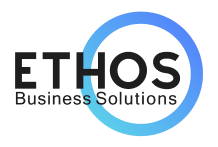Introduction
When managing critical financial and operational data in NetSuite, automation and accuracy are key to success. Utilizing NetSuite’s custom record functionality, organizations can capture and manage information not covered by standard NetSuite records, facilitating the tracking of specialized data and processes.
These custom records can be linked to existing entities, items, or transactions, enabling seamless integration within the NetSuite ecosystem. This flexibility supports the development of customized workflows, automations, and reporting capabilities, enhancing overall efficiency and data accuracy.
In this post, we’ll explore how NetSuite’s custom record functionality was used to address the complex needs of one of Ethos’s client.
Understanding the Challenge
A global leader in the sourcing, marketing, and distribution of industrial raw materials faced challenges tracking profit analysis across spreadsheets, disparate systems, and manual processes that weren’t part of NetSuite’s standard record set. To overcome these inefficiencies, the organization sought an integrated solution to streamline data management, enable external access, and simplify onboarding for new partners.
To further support their business objectives, the solution was specifically designed to allow their partners to input their own data directly into the system. This feature enabled partners to report against the client’s transactional data while maintaining full data integrity and visibility. By allowing partners to collaborate seamlessly within the same system, the solution provided a unified approach to data sharing and decision-making.
Our Solution
To tackle the complexities of managing large volumes of operational and financial data, we designed and implemented customized NetSuite solutions to address unique business needs.
Our approach focused on creating custom records and workflows to improve data accuracy, streamline operations, and enhance decision-making capabilities:
- Role-Based Access Control
Configured Advanced Partner Center to ensure secure, role-specific data access for both the client and their external partners, allowing each party to view and manage relevant data. - Centralized Analysis Records
Created custom records to consolidate transaction details, including revenue, costs, timelines, and balances, enabling real-time insights. - Revenue and Cost Tracking
Designed linked custom records to track and summarize budgeted vs. actual costs, with built-in unit conversion for precise reporting. - Partner Cost Management
Developed custom records for partners to input costs directly, ensuring reconciliation and audit traceability. - Automated Financing Calculations
Built custom records to track interest and financing, linked to rate tables for accuracy and efficiency.
Saved searches were designed to extract and aggregate key financial and operational data from custom records, which had previously only been available through disparate systems.
This data was then dynamically sourced into custom fields, where real-time calculations and default sourcing rules automated the analysis of transaction details. These features ensured that both the client and their partners could access and rely on accurate, up-to-date financial insights.
The Outcome
A combination of custom records, saved searches, and custom fields was leveraged to deliver critical data insights and streamline operations in one unified platform. By integrating these tools, the solution provided accurate, dynamic insights into key metrics, empowering stakeholders with actionable, up-to-date information.
Key benefits included:
- Streamlined Operations: Automating calculations saved considerable time and reduced manual effort for both the client and their partners.
- Enhanced Accuracy: Default values and dynamic sourcing ensured consistent and error-free analysis across all transactions.
- Improved Decision-Making: Real-time insights into deal performance allowed for more informed business decisions by both the client and their partners.
- Collaborative Data Sharing: Partners could input their own data directly, enabling seamless reporting and reconciliation against the client’s transactional records.
The client now has a reliable and efficient process for analyzing complex data, empowering their partners to collaborate effectively while maintaining precision in financial reporting.
Conclusion
The ability to efficiently manage and analyze large volumes of custom data is essential for growing businesses. By leveraging NetSuite’s customization capabilities—such as custom records, saved searches and custom fields with default values—we transformed our client’s profitability analysis process into a powerful, automated solution.
Furthermore, by enabling external partners to collaborate within the same system, the solution fostered greater transparency and streamlined data sharing. This approach not only addressed immediate challenges but also provided the flexibility to adapt to future business demands.





